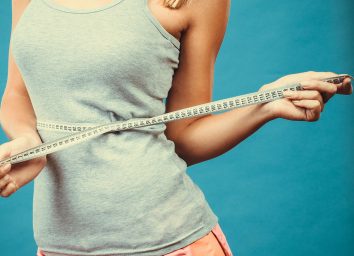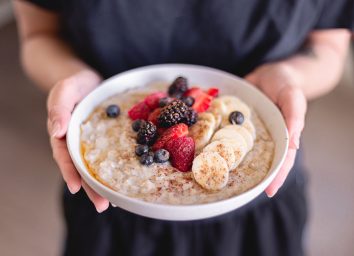Nutrition Tips Everyone Should Follow After 50, Say Dietitians

As we get older (and, of course, wiser), a nutrient-dense diet becomes more important. "In general, we will need slightly fewer calories, but many of our needs remain the same as when we were younger and could consume more calories while maintaining our weight," says Kristian Morey, RD, LDN, a Clinical Dietitian with the Nutrition and Diabetes Education program at Mercy Medical Center in Baltimore, Maryland.
While the amount of food we eat as we age may remain somewhat stable, what doesn't stay the same is how efficiently our bodies extract nutrients from those foods. As older adults, "we may be less efficient at absorbing some nutrients from our foods. For example, individuals over the age of 50 have a higher need for vitamin D due to the skin's reduced capacity to make it," she continues, noting that we also can lose some ability to absorb certain nutrients like calcium and vitamin B12.
"Finally, some medications can interfere with the absorption or use of some nutrients—this is a concern with zinc, as a deficiency is common in older individuals," she adds.
For more nutrition tips seniors should keep in mind, we asked registered dietitians to share the diet secrets we may not be aware of after we reach the age of 50. Read on, and for more on how to eat healthy, don't miss Simple Ways to Start Losing Weight Immediately, According to Science.
Eat a diet rich in fruits and vegetables.
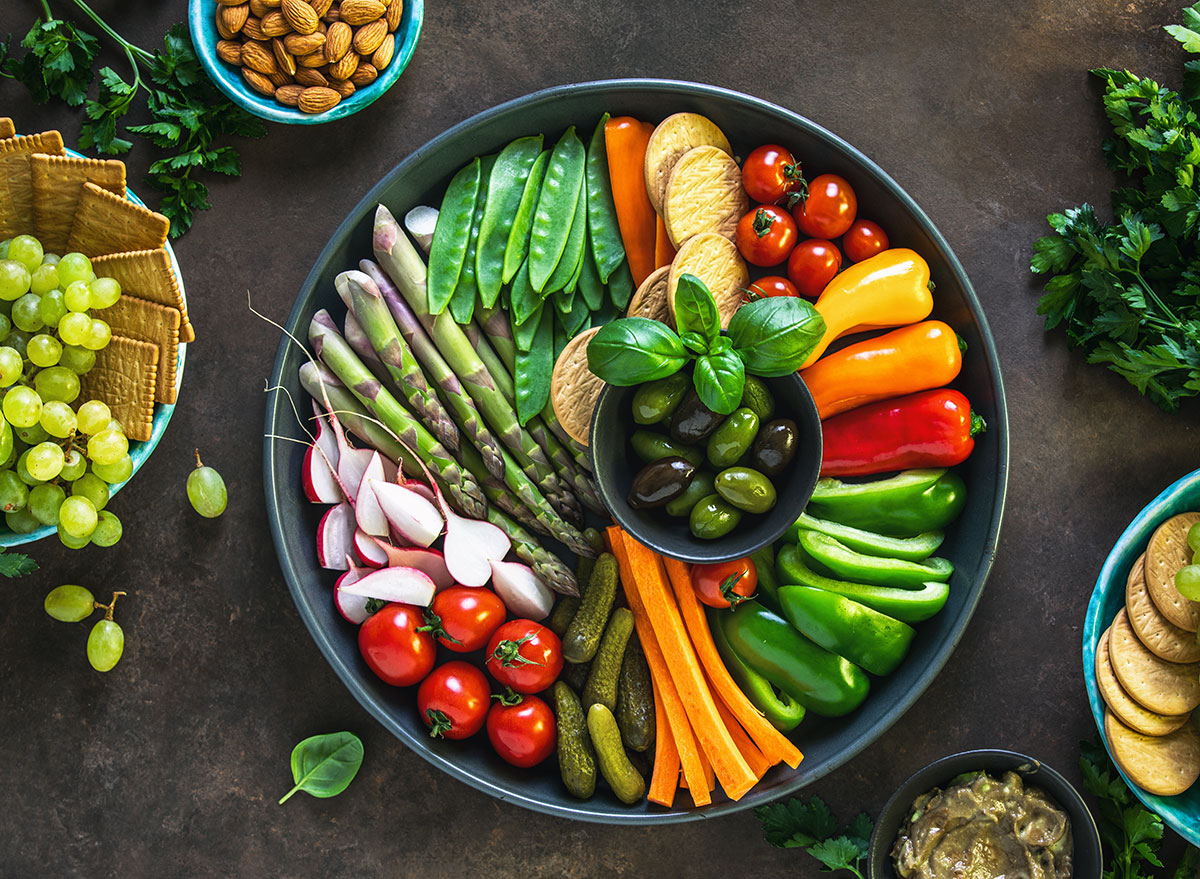
"Even as we age, we still need the same essential nutrients and vitamins you needed 50 years ago. It would be best to build a weight loss diet around fruits and vegetables because they are rich in fiber and water, which help cut weight," says Kristen Fleming, MS, RD, CNSC, consultant for BetterMe, a leading behavioral healthcare company, who recommends green smoothies if you're not a huge fan of fruits and veggies. As much as you can, try to eat the rainbow to ensure you're getting a wide variety of nutrients.
Make sure you're getting enough B12.
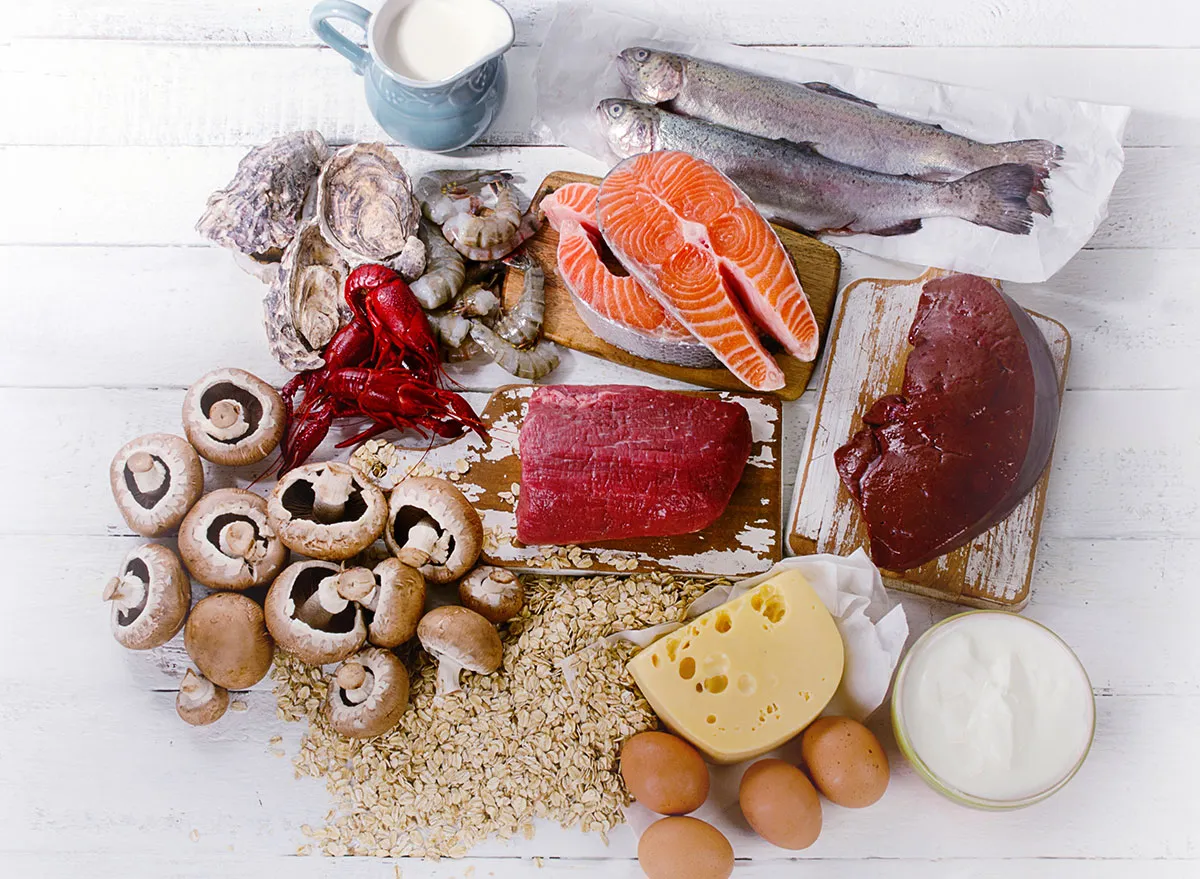
The National Institutes of Health recommends adults get 2.4 micrograms of B12 per day. As you get older, your risk of a vitamin B12 deficiency increases.
"Older adults are less able to absorb vitamin B12 because up to 30% of adults over 51 years of age have atrophic gastritis with low stomach acid secretion,'" explains Megan Wong, RD at AlgaeCal, citing this research. "B12 deficiency can lead to changes in mood, memory, and cognition. To prevent vitamin B12 deficiency, older adults who don't regularly eat a B12-rich diet should take a B12-containing supplement." Talk to your doctor to make sure your B12 levels are in a healthy range (this can be determined in standard blood work) and if a supplement may be necessary for you.
Fortified foods like plant-based milks, cereal, and nutritional yeast are good sources of B12 for older people too: "Consider adding a synthetic source of vitamin B-12 from a fortified food," says Morey. "Naturally occurring B-12 is bound to proteins, which become more difficult to separate in our digestive tract as we age. Try adding a fortified plant-milk and/or fortified breakfast cereal to give yourself a B-12 boost."
Regularly consume protein.
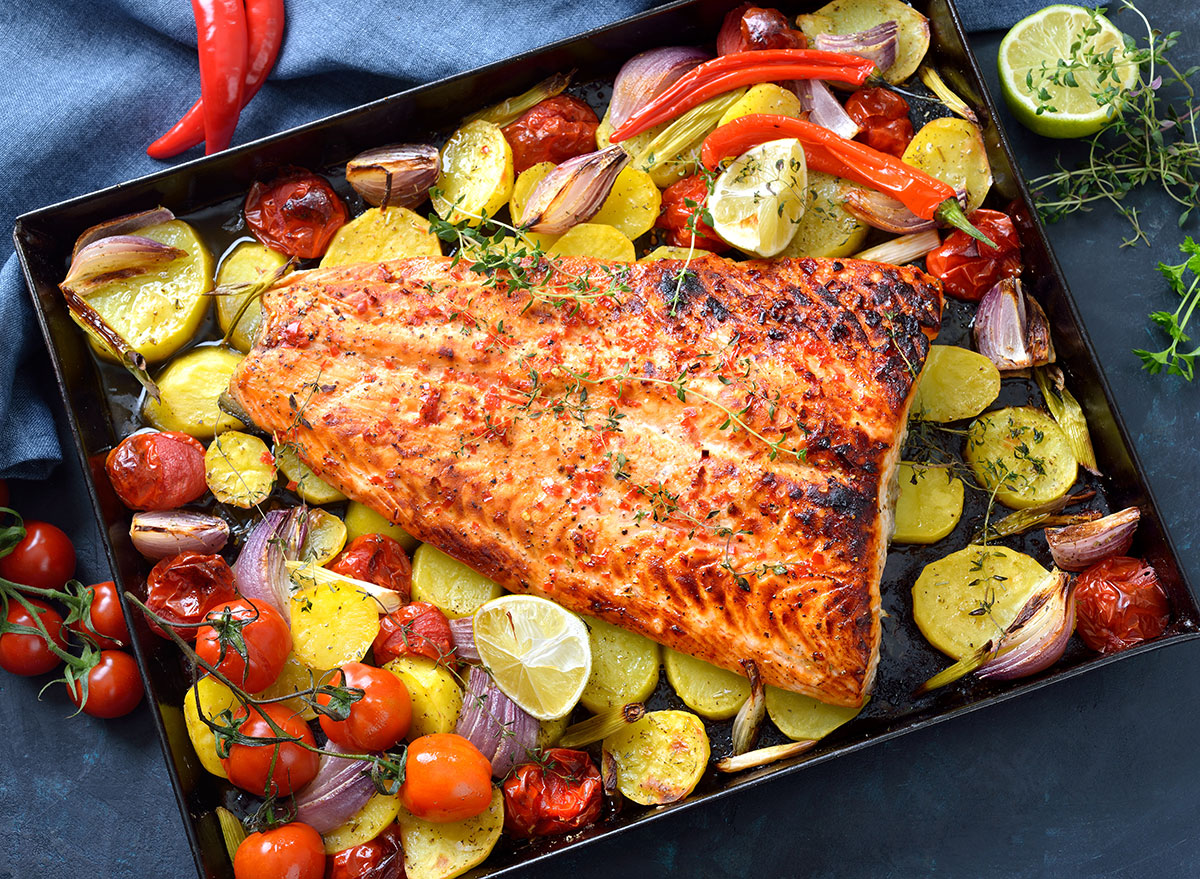
When we get older, it's important to zoom in on this macronutrient and ensure you're getting enough of it. "According to a study, adults between ages 52-75 built muscles best after eating 1.5 grams of protein for every kilogram of body weight every day," says Fleming. "Dietitians recommend an intake between 1.2-1.7 grams per kilogram of body weight for muscle building, which is about 109-154 grams for a 200-pound person."
READ MORE: Popular Foods With More Protein Than Beef
Reduce your refined carb intake.
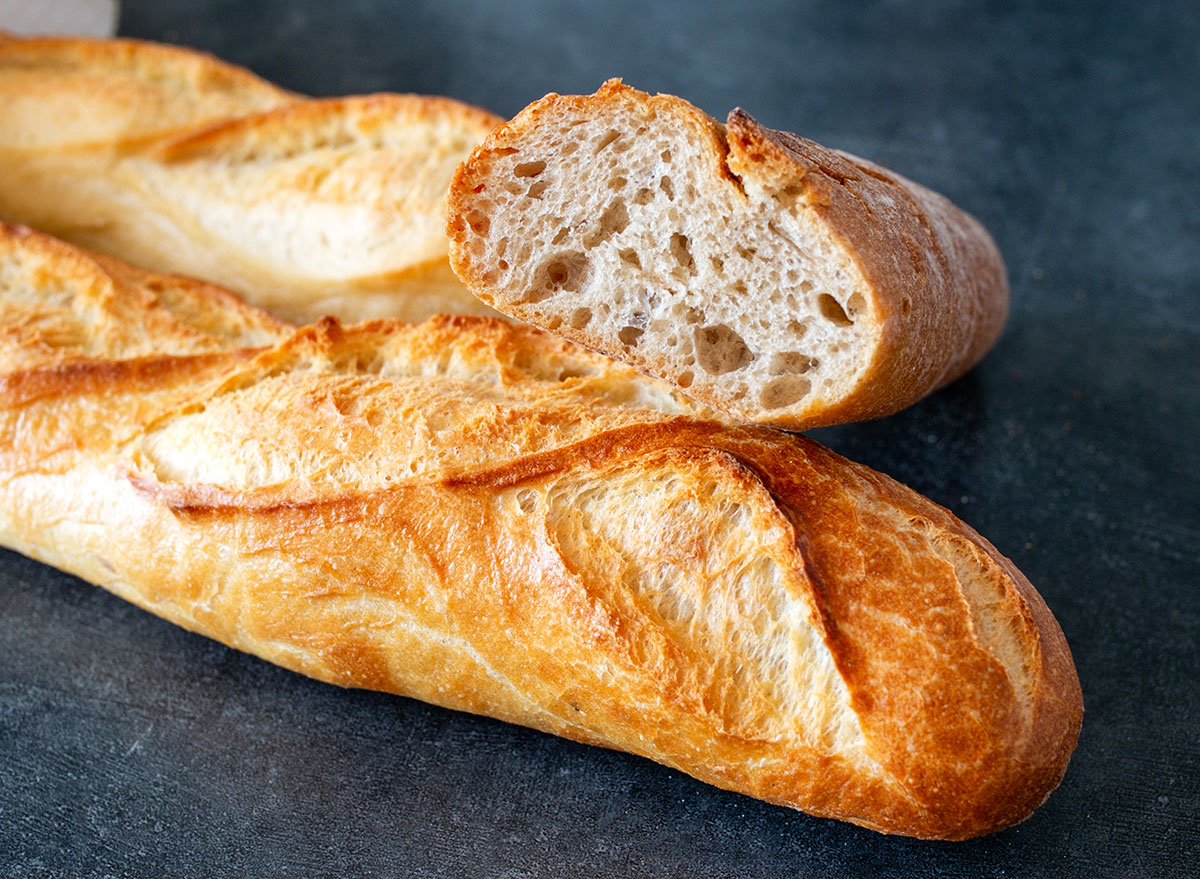
We know French baguettes are delicious, but everything should be done in moderation. It may be time to cut back on how many refined carbs you're eating, 50+ friends: "One of the biggest problems adults over 50 face is insulin resistance," says Fleming, citing this research. "Insulin resistance can be reduced by cutting down on certain types of carbohydrates, the body's primary fuel source found in most foods and are easy to break down. Replacing refined carbs (like white bread, white pasta, and white rice) and added sugars with whole-grain products, fruits, and vegetables can help with managing blood sugar, improve blood lipid levels, and help you lose weight."
Get plenty of fiber.
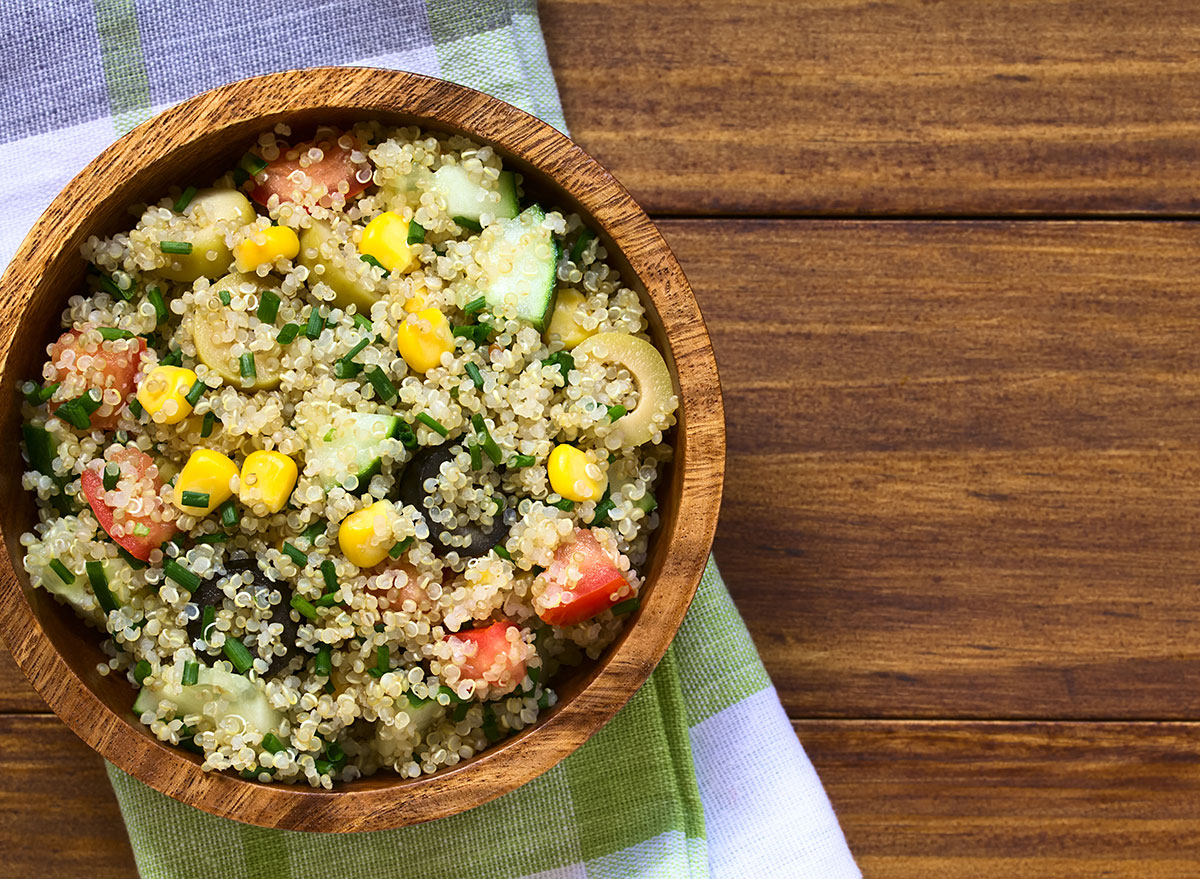
Yes, it helps with keeping you regular, but there are many more reasons to load up on fiber.
"Fiber may help promote healthy digestion, manage blood sugar, and reduce cholesterol levels," says Marisa Moore, MBA, RDN, LD, Culinary and Integrative Dietitian at marisamoore.com. "Easy ways to get more fiber include adding beans, peas, lentils, or raspberries to your diet, all of which pack a whopping eight grams of fiber per cup. Top yogurt or a green salad with raspberries for a flavorful pop of color."
Required reading, 50+ friends: 20 different ways to eat 28 grams of fiber a day.
Stay hydrated.
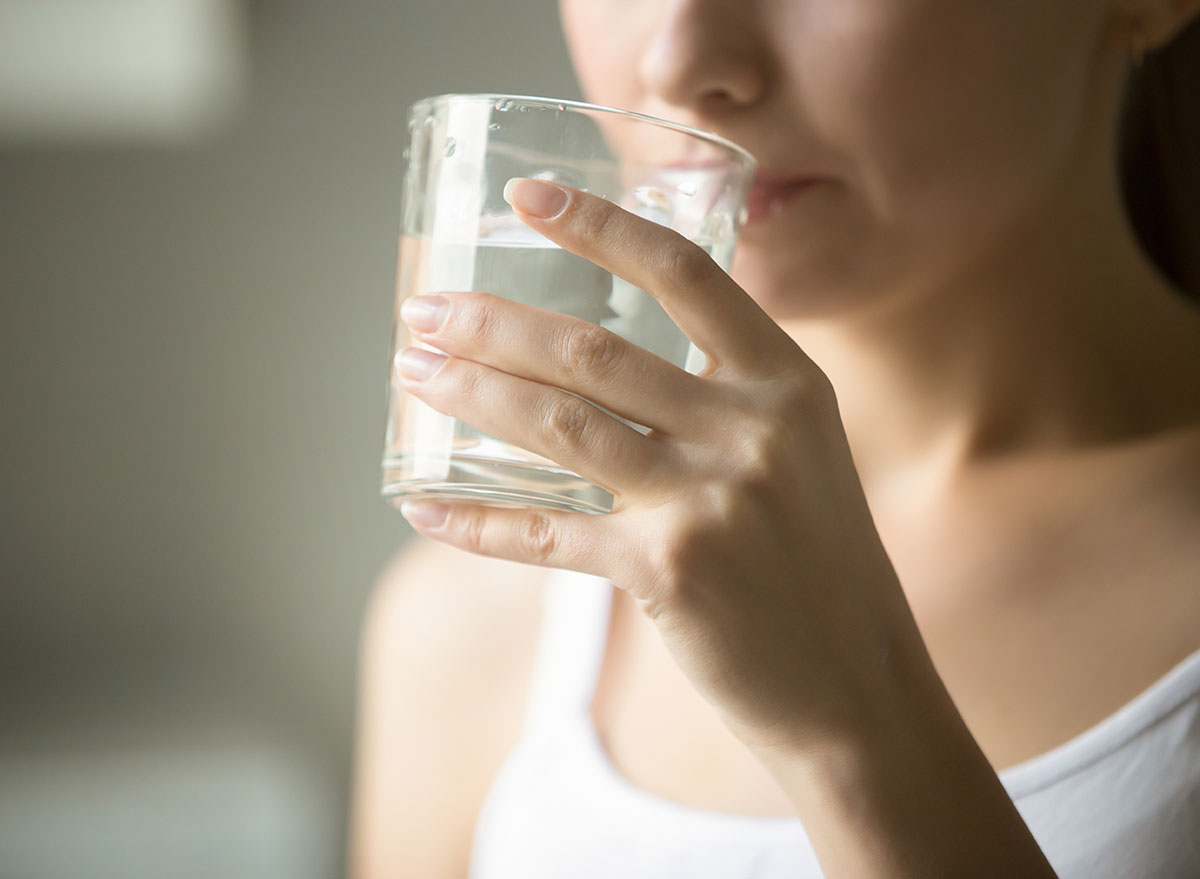
Water, water, water, keep drinking that water. "Older adults tend to drink less fluids, putting them at a higher risk for dehydration. Research suggests that 20-30% of older adults are affected by dehydration. Common reasons are reduced thirst sensation, decreased appetite, and fear of having to go to the washroom too often," says Wong.
"A handy tip is to fill a pitcher, or several cups, of water at the start of the day, aiming to finish them before the end of the day." If plain water is boring for you, try adding cucumber wedges and mint, or slices of fresh fruit to infuse H2O with extra flavor.
Here are the amazing things that happen to your body when you drink eight glasses of water a day.
Make sure you're getting enough calcium.
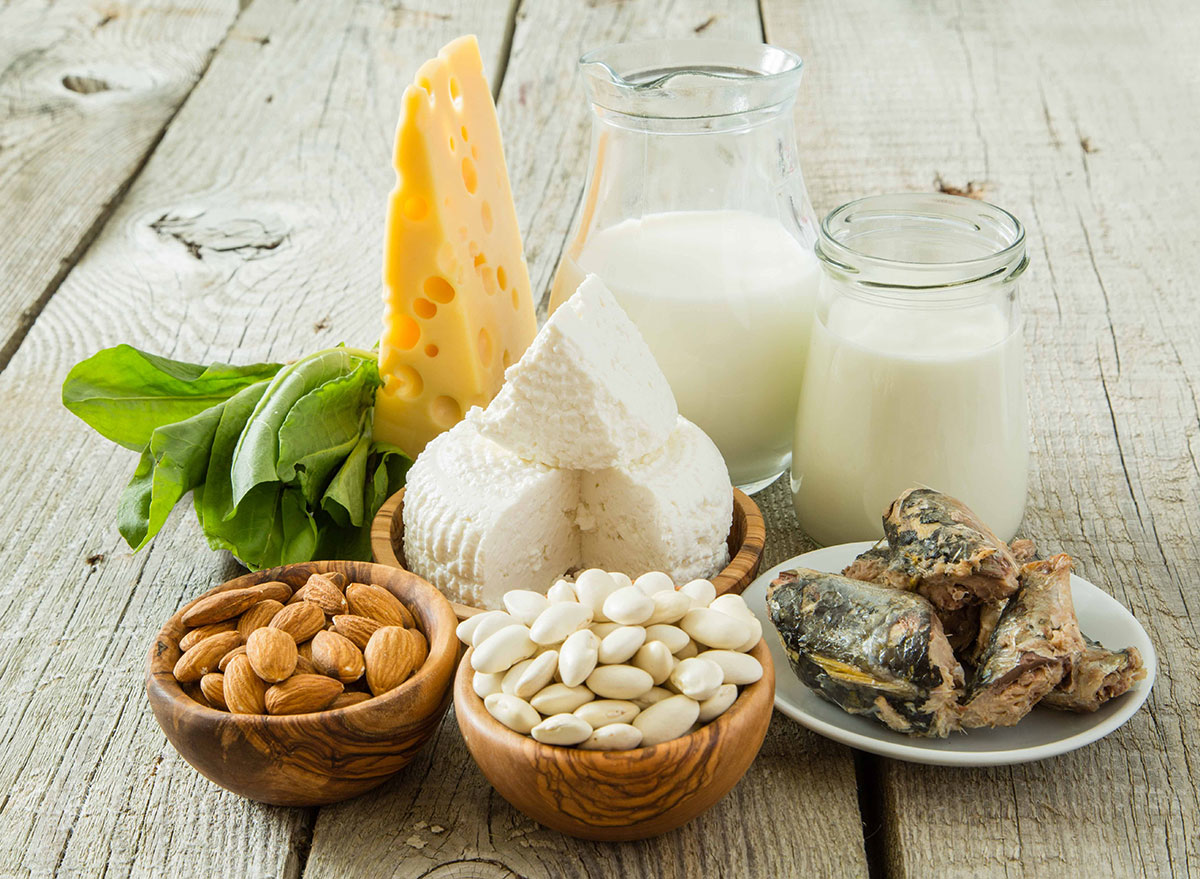
Calcium needs increase when we age. "Daily calcium recommendations are 1,000 milligrams for adults aged 19-50 years, increasing to 1,200 milligrams for women aged 51+ and men aged 71+ (menopause being the driving factor for the difference between older men and women)," says Wong.
"Natural bone loss begins for both sexes around the age of 40 and getting enough calcium is a key part of keeping bones strong and healthy. Older adults who don't get enough calcium from their diets should consider a calcium supplement that's well-balanced with calcium's 'helper' nutrients including vitamin D3, vitamin K2, and magnesium."
If you already take calcium supplements, check the label to make sure it includes those extra nutrients and talk to your doctor if you have any concerns or questions.
Focus on flavonoid-rich foods.
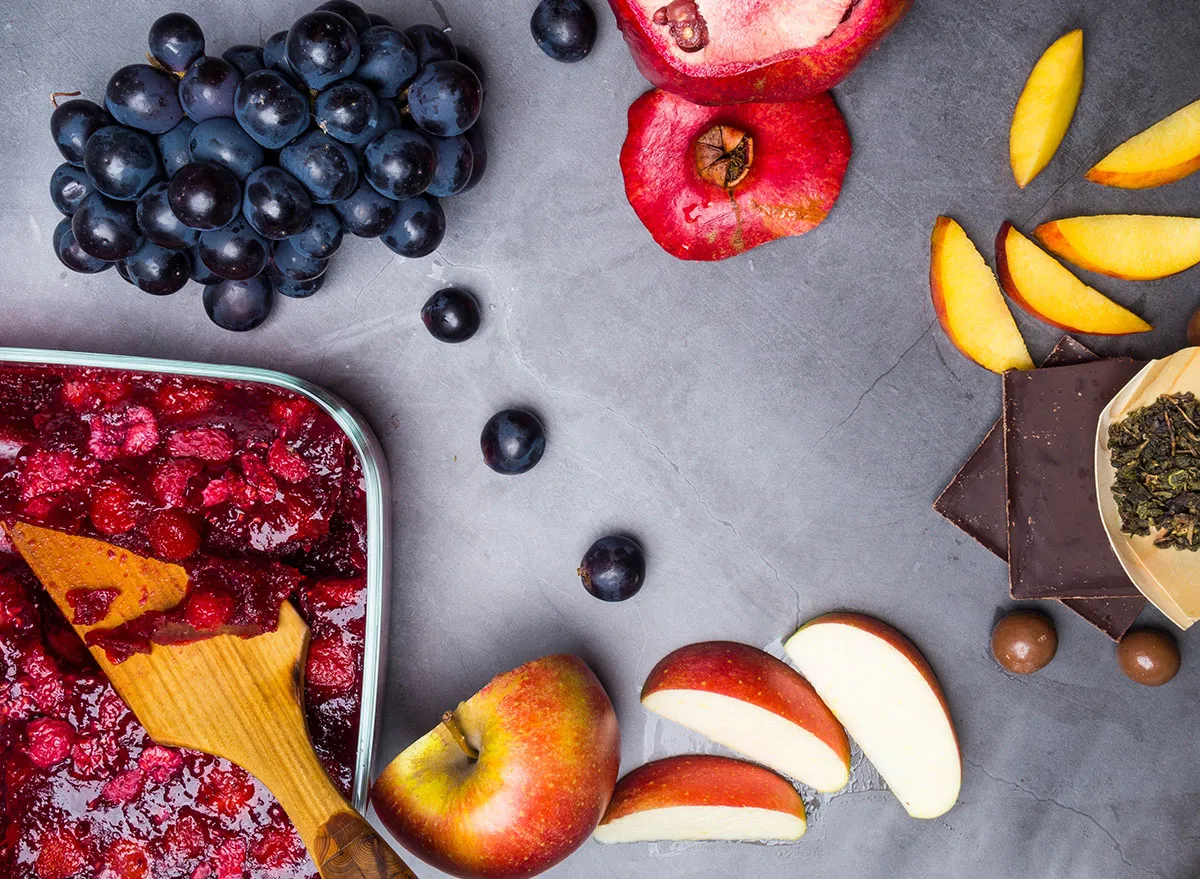
Flavonoids are compounds found in plants with incredible health properties. They're found in a variety of sources, including tea, citrus fruit (or juices), berries, apples, and legumes.
"Though it doesn't prove a causal relationship, one study found that low intakes of certain foods such as berries, apples, and pears were associated with a higher risk of developing dementia," says Moore. "Luckily, foods like apples and pears are portable and affordable," she elaborates, recommending individuals keep these fruits on hand for easy access for snacking.
Get enough potassium.
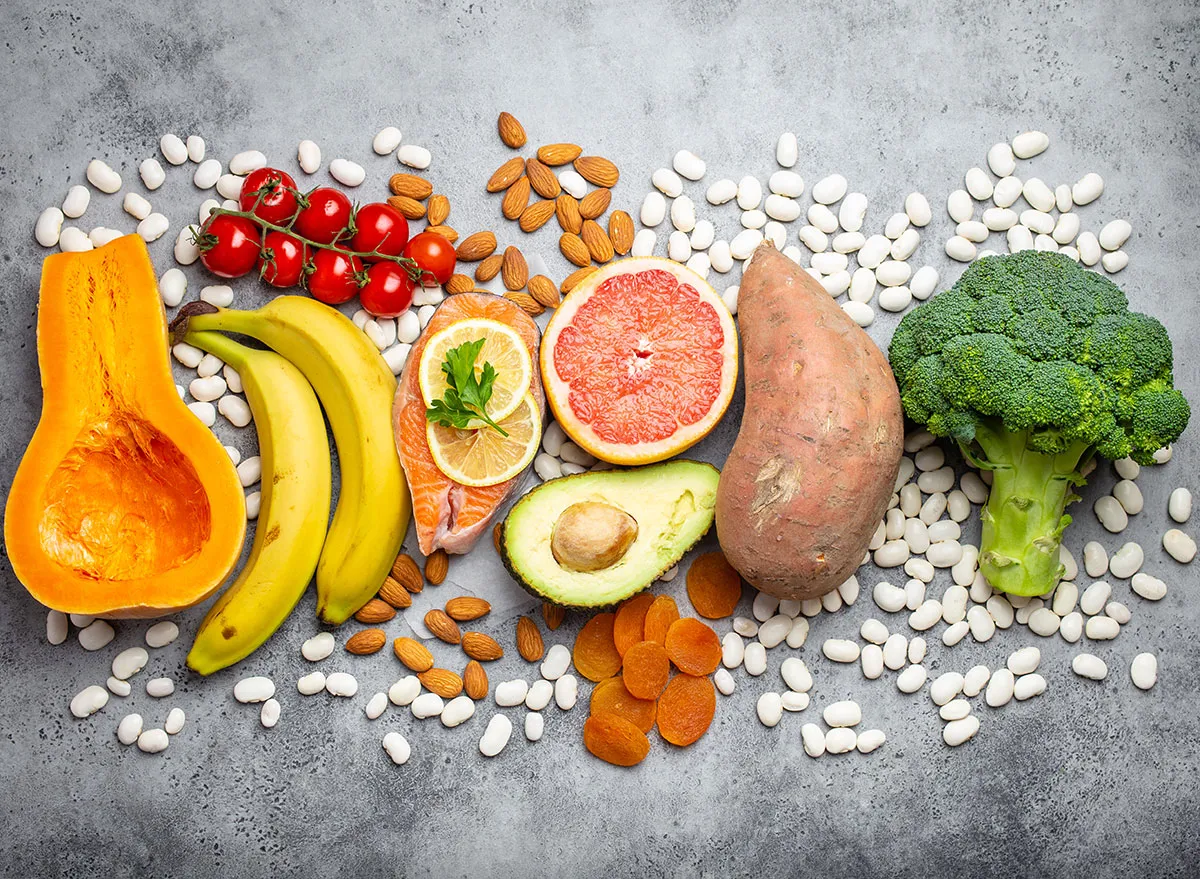
"When thinking about maintaining a healthy blood pressure level, many think about salt. While sodium is important, potassium is essential for blunting the effect of high sodium intake on blood pressure levels and many people don't get enough," says Moore.
In addition to bananas, Moore says spinach, mushrooms, and sweet potatoes are other good sources of potassium to add to your regular rotation.
READ MORE: Popular Foods With More Potassium Than a Banana
Eat more beets.
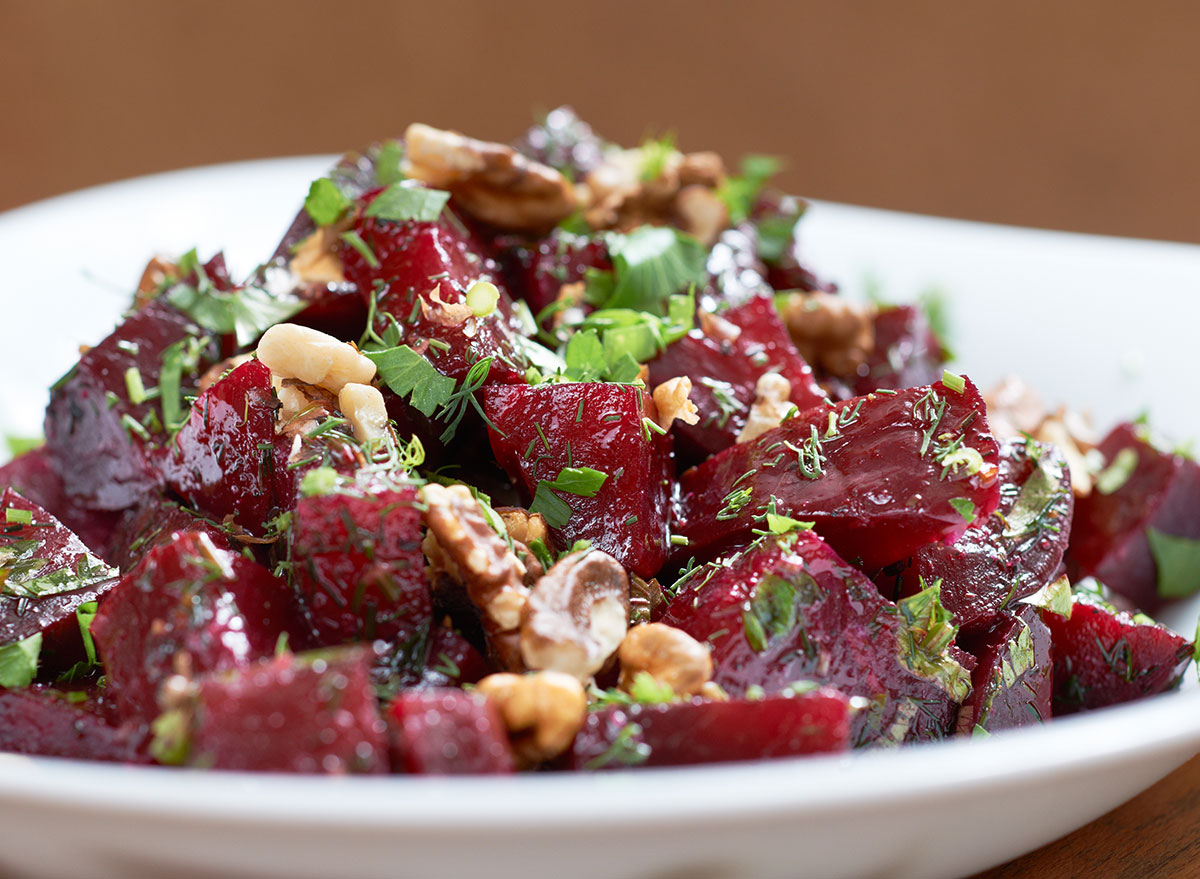
Or, you can drink beet juice, says Wong. "More and more research shows that beets are great for reducing blood pressure and preventing cognitive decline, two common issues among older adults," comments Wong. "In one study looking at older adults, a diet that included two cups of beet juice in the morning was linked to increased blood flow in the brain… in an area that helps to boost working memory."
Pay attention to your eye health.
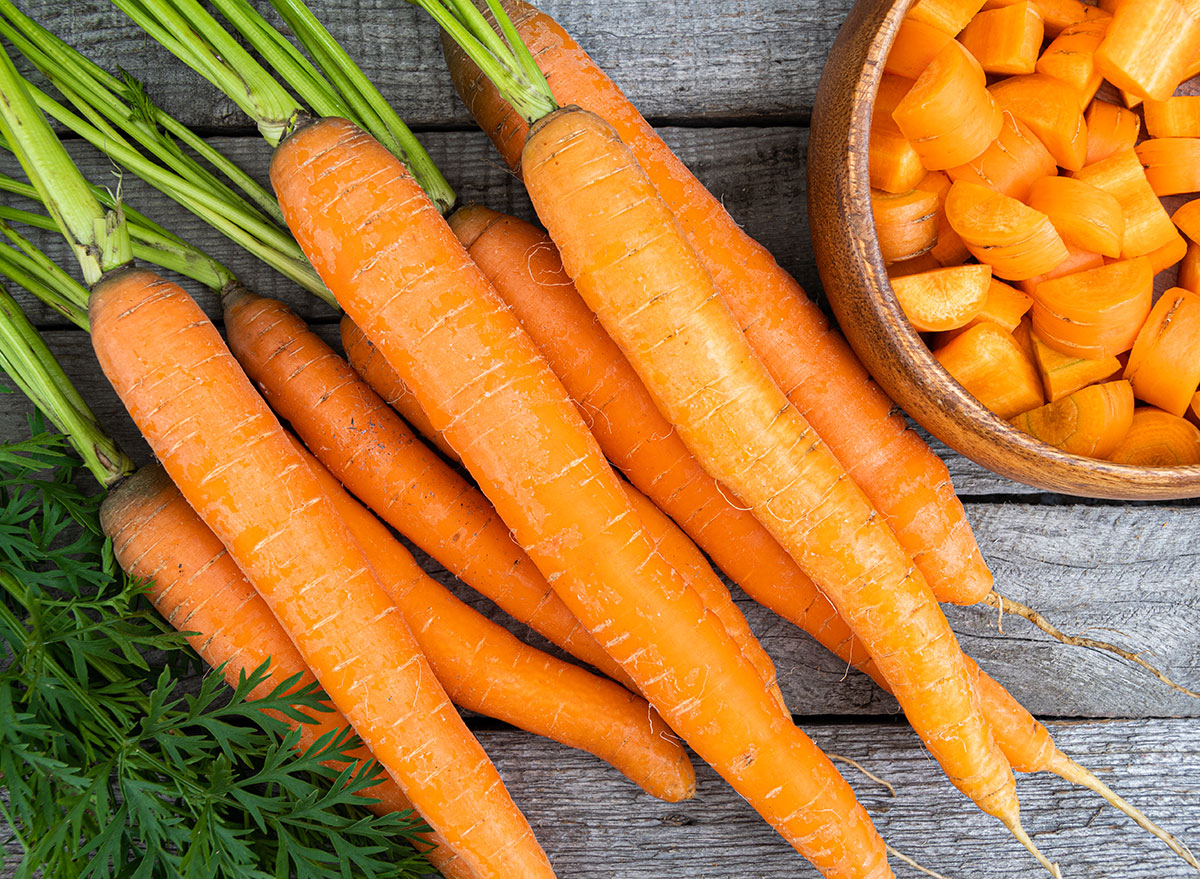
Eat your carrots to help your peepers, dear readers. The reason they may help your vision is due to their high lutein and beta-carotene content, antioxidants which research shows protect your eyes. Cantaloupe is great for eye health support, and avocados too.
"Fresh avocados are one of my top recommendations when eating for optimal health as we age. In a clinical study of 40 healthy, older adults, researchers found that people who consumed one avocado per day for six months had higher blood and eye lutein levels compared to when they started the study," shares Moore. "Lutein is a carotenoid that some research suggests may help maintain eye health as we age. There are plenty of ways to add fresh avocado to your day, but I suggest adding fresh avocado to a smoothie for an easy, creamy upgrade." We don't know about you, but we're never turning down an excuse to eat an avocado, even if we're not those avocado toast-obsessed millennials.
Read this next:
- Over 50? Eat These Foods For Stronger Bones, Say Dietitians
- Health Habits Experts Warn You Should Avoid if You're Over 50
- Drinking Habits That Are Wrecking Your Body After 50, Say Dietitians
